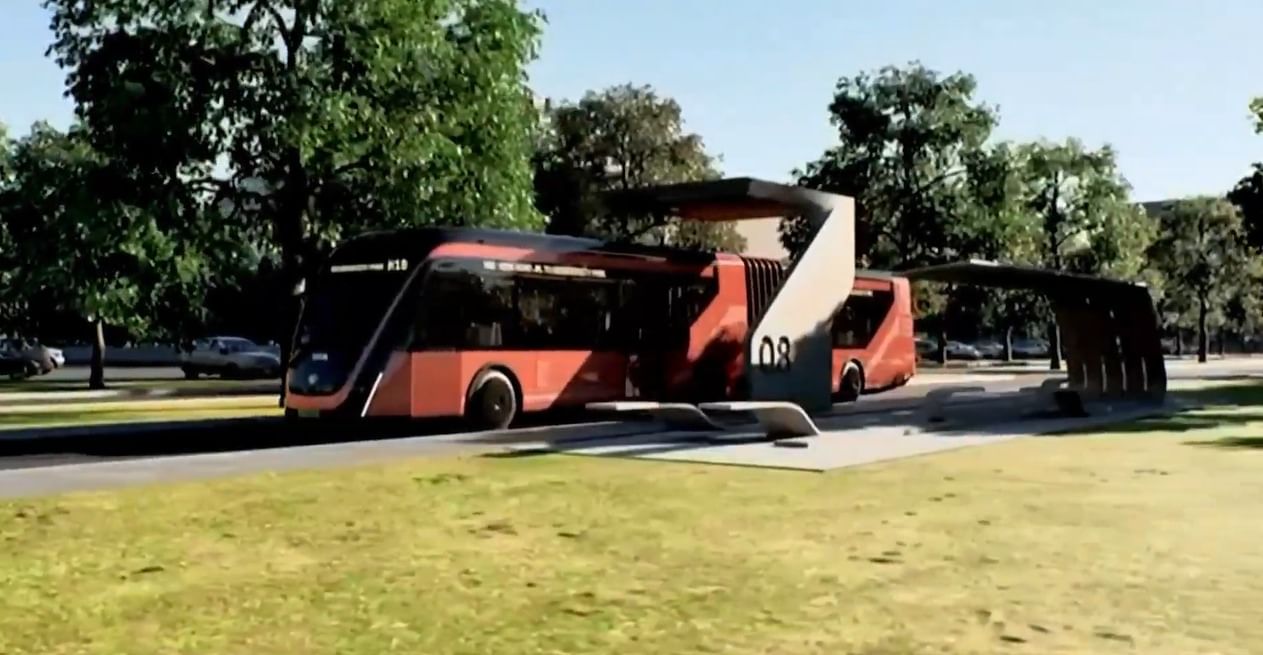In a bid to improve sustainable public transport services across cities, Minister of Road, Transport and Highways Nitin Gadkari on Wednesday advocated the rollout of a flash-charging-based electric articulated bus system on new highways.
“It is essential to transform the public transport system in the country…With new highways connecting the cities seamlessly, I wish to establish a new public transportation system,” Gadkari said while speaking at the 24th Darbari Seth Memorial Lecture organised by The Energy and Resources Institute (TERI).
A flash-charging-based electric articulated bus system uses a fully automated fast charging system installed at bus stops for rapid battery top-ups within seconds while passengers board and alight at designated stops. This allows continuous operations on high-frequency routes rather than long periods of charging at a depot.
Hitachi Energy and Siemens have developed such flash-charging technology and onboard traction equipment for high-frequency and high-capacity bus routes with fully automated fast charging stations installed at bus stops along the highway stretches.
Gadkari highlighted that the capital cost of the new bus system is lower than a metro, and its fare would be 30% less than a diesel bus. He added that with new highways significantly reducing travel times, the electric bus system will offer a fast, affordable, and sustainable alternative across cities on highways such as Delhi-Dehradun, Bangalore-Chennai and Delhi-Jaipur.

Tata Motors has bagged the tender for its pilot project in Nagpur. The 18-meter-long bus, manufactured at Tata Motors’ Dharwad facility, is designed to carry up to 135 passengers and features an executive coach with air conditioning, infotainment, and a top speed of 120 km/h. Hitachi and Siemens are providing the flash-charging technology.
“We are also exploring this system for trucks as well. We had a discussion with Siemens recently where it was proposed to lay electric cables along a 10-kilometer stretch of highway, similar to a railway system, and allow a bus to travel 40 kilometers on a single charge. This is expensive, will cost around Rs 8 crore, but we can do it on a build–operate–transfer model,” Gadkari said.
